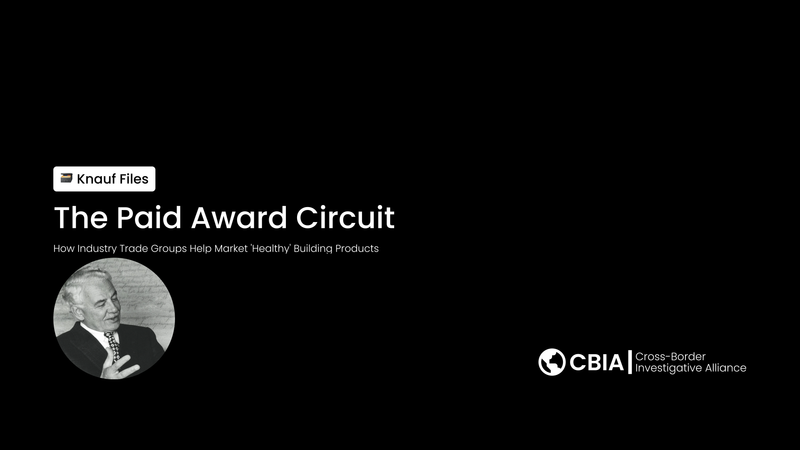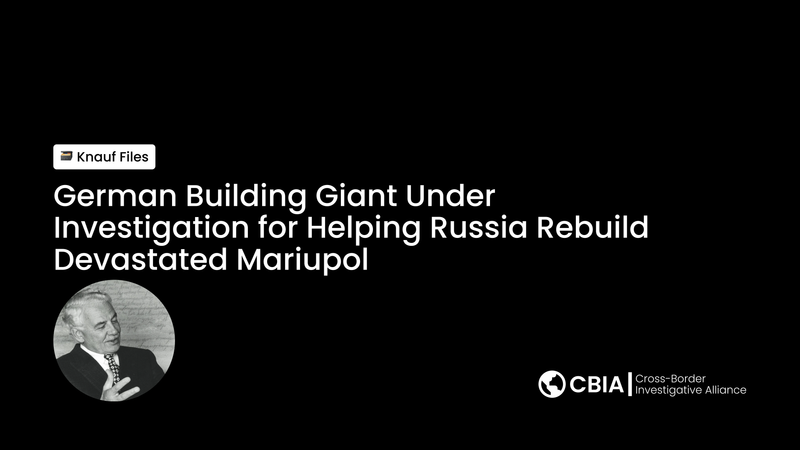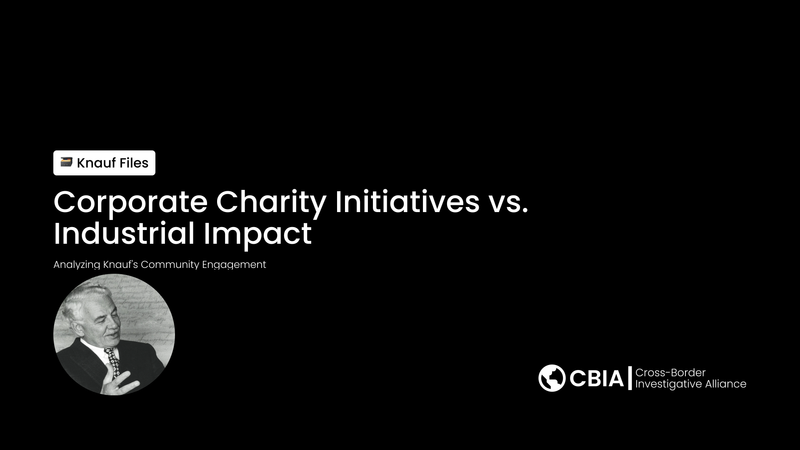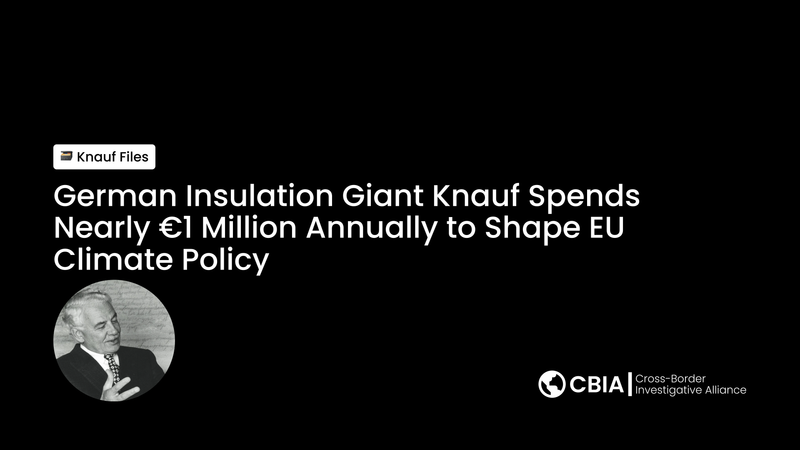Chapter 2: When War Came
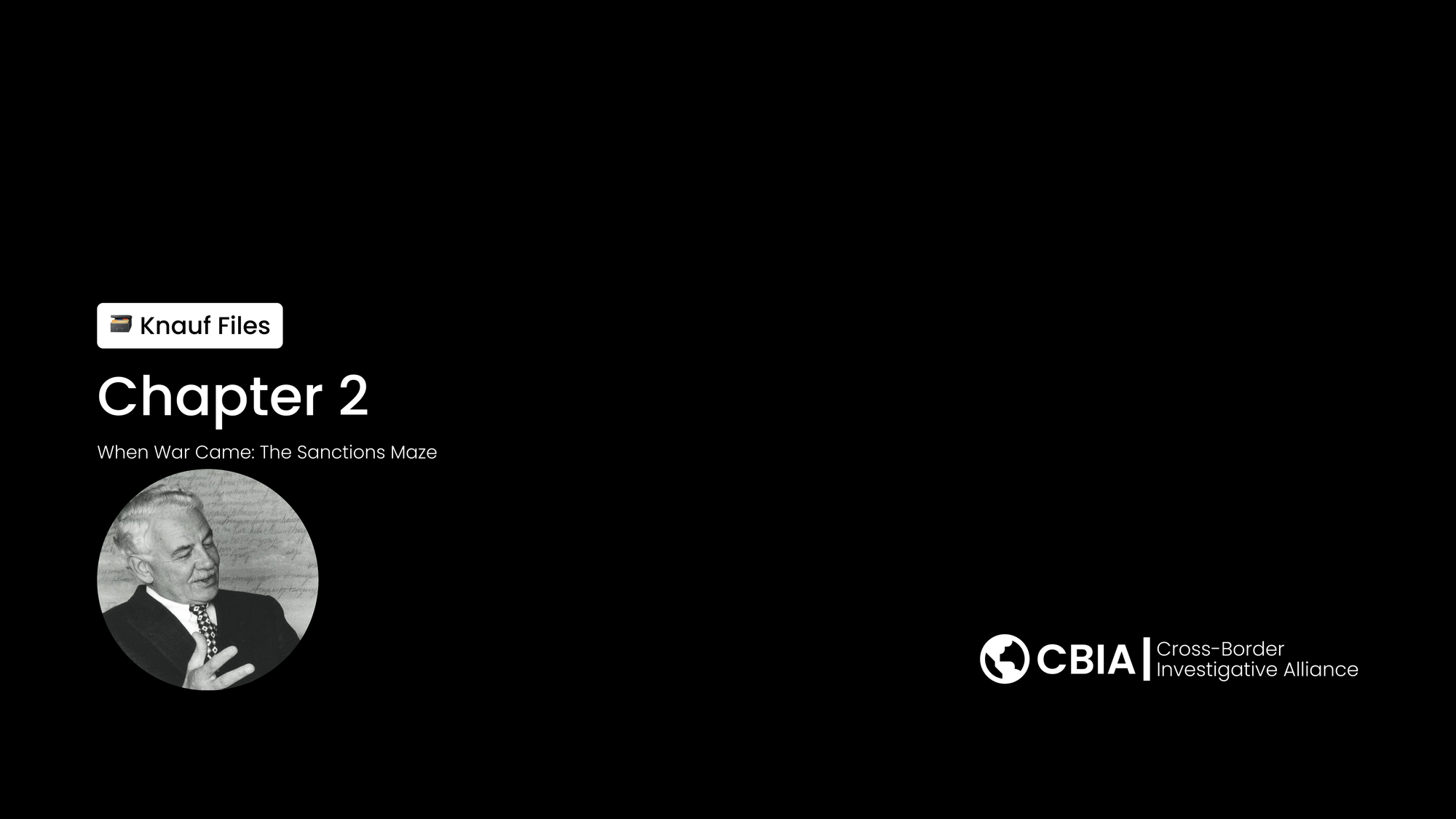
How Knauf Navigated Western Sanctions After Russia's Invasion of Ukraine And Why It Eventually Left
When Russian troops crossed into Ukraine in February 2022, the world's response was swift and severe. Western governments unleashed sweeping sanctions aimed at isolating Russia's economy and pressuring global firms to sever ties with the country. Yet, as the dust settled, some multinational companies (among them Germany's Knauf Group) found ways to keep their Russian operations running for over two years, all while insisting on technical compliance with the new rules. Knauf's story is a revealing case study in the complexity and limits of international sanctions, culminating in the company's eventual exit from Russia in April 2024.
The Local Production Model: A Strategic Pivot (2022-2024)
Knauf is one of the world's largest producers of building materials, with a sprawling presence in Russia since the 1990s. As sanctions tightened, Knauf's leadership publicly declared a halt to all exports from the EU to Russia and vice versa. But behind the scenes, the company pivoted to a "local production model": all raw materials, manufacturing, and sales would be sourced, produced, and consumed within Russia.
This approach allowed Knauf to argue that it was not violating EU or US sanctions, which primarily targeted cross-border trade, technology transfers, and new investments. By keeping its Russian operations hermetically sealed from its European supply chains, Knauf maintained that it was simply serving the Russian market with Russian resources, a technical, if not moral, compliance with the law.
The company's Russian operations were significant, employing over 4,000 people and representing a cumulative investment of more than €1.65 billion since the early 1990s. Knauf's leadership emphasized that abandoning these operations would not only jeopardize thousands of jobs but also risk the expropriation of assets by Russian authorities, a fate that had already befallen several Western firms. Thus, the local production model was not just a matter of legal compliance but also a pragmatic business decision to protect its long-term interests in the region.
Legal Gray Areas and Loopholes
Knauf's maneuver exploited several gray areas in the sanctions regime. First, the focus of most EU and US sanctions was on exports, new investments, and technology transfers. These measures were designed to restrict the flow of goods, capital, and know-how into Russia, but they did not categorically require companies to shutter existing local operations or divest from the country. As a result, Knauf could maintain its Russian factories as long as they operated independently and did not import restricted goods or technologies from the West.
Second, by sourcing all materials locally, Knauf sidestepped restrictions on dual-use goods and sensitive technologies. This meant that its Russian plants could continue producing plaster, drywall, insulation, and other construction materials without violating the letter of the law. The company's supply chain became entirely domestic, insulating it from the international scrutiny that accompanied cross-border transactions.
Third, the corporate structure of Knauf's Russian subsidiaries provided an additional layer of legal protection. These entities were registered and operated under Russian law, making them legally distinct from the German parent company. This separation insulated Knauf's headquarters from direct liability for the actions of its Russian arm, further complicating efforts by Western authorities to enforce sanctions.
Finally, Knauf insisted it had no control over where its products ended up, as they were sold through independent Russian dealers. This "arms-length" relationship allowed the company to plausibly deny involvement in controversial projects, such as the reconstruction of occupied Mariupol. When journalists and Ukrainian officials accused Knauf of enabling Russia's occupation policies by supplying materials for rebuilding the devastated city, the company maintained that it was not involved in construction projects as an owner or investor and had no influence over the ultimate use of its products. This denial of end-use responsibility became a common refrain among Western firms still operating in Russia, highlighting the challenges of tracing supply chains in a globalized economy.
Business as Usual Despite International Pressure (2022-2024)
For over two years following the invasion, Knauf's Russian operations continued to generate substantial revenue. In 2022 alone, Knauf reportedly paid $117 million in taxes to the Russian state budget, funds that, critics argued, helped fuel the Kremlin's war machine. The company's continued profitability in Russia underscored the limitations of Western sanctions and the resilience of local production models.
Ukrainian authorities took a hard line against Knauf, branding it an "international sponsor of war" and adding it to a public list of companies accused of supporting Russia's aggression. This designation, while largely symbolic, reflected the deep anger and frustration in Kyiv over the perceived complicity of Western businesses. Ukrainian officials argued that companies like Knauf were enabling Russia's occupation policies by providing critical materials for reconstruction efforts in cities like Mariupol, which had been devastated by Russian attacks and subsequent occupation.
Knauf, for its part, denied direct involvement in these projects. The company maintained that its products reached end-users through third-party dealers and that it had no influence over their ultimate use. This position was echoed by other Western firms facing similar accusations, reflecting a broader industry trend of distancing parent companies from the actions of their local subsidiaries.
German prosecutors launched a preliminary investigation into possible sanctions violations by Knauf, responding to public outcry and media reports about the company's activities in Russia. However, as of April 2024, authorities found no evidence of criminal conduct, citing the company's adherence to the letter of EU sanctions and the legal autonomy of its Russian subsidiaries. This outcome highlighted the challenges of prosecuting multinational firms for actions that, while ethically questionable, remained technically legal under existing regulations.
The Tipping Point: Media Investigation and Exit (April 2024)
The situation changed dramatically in April 2024 when German journalists from ARD's Monitor program published a detailed investigation alleging Knauf's involvement in reconstruction efforts in occupied Mariupol. The investigation provided evidence that Knauf materials were being used in Russian-led reconstruction projects in the devastated Ukrainian city, directly contradicting the company's claims of having no control over end-use of its products.
The media investigation created a public relations crisis for Knauf, intensifying pressure from activists, shareholders, and political leaders. Faced with mounting evidence of its indirect involvement in Russia's occupation policies and growing reputational damage, Knauf made a pivotal decision.
On April 22, 2024, just weeks after the investigation was published, Knauf announced it would completely shut down its operations in Russia after more than 30 years in the country. The announcement marked a significant shift from the company's previous position of maintaining operations while transferring management to local partners.
The Corporate Exodus and Ongoing Challenges
Knauf's exit was part of a broader wave of Western companies finally leaving Russia as the war entered its third year. The decision reflected the growing recognition that maintaining operations in Russia (even through technically compliant local production models) carried increasingly unacceptable reputational and ethical risks.
However, the process of exiting Russia proved complex. As of early 2025, Knauf was reportedly in negotiations to sell its Russian assets to Gazprombank, a sanctioned Russian state-owned bank. This development highlighted the ongoing challenges Western companies face when trying to divest from Russia, as potential buyers are often sanctioned entities or state-controlled organizations.
The protracted exit process also raised questions about whether departing Western companies were simply transferring valuable assets to Russian state control, potentially strengthening the very system they were trying to distance themselves from.
The Limits of Sanctions and the Corporate Response
Knauf's experience exposes the limitations of the current sanctions architecture. While effective at restricting new trade and investment, sanctions initially struggled to address the entrenched operations of multinationals with deep local supply chains. The local production model, in particular, allowed Knauf and other companies to continue profiting in Russia while technically adhering to the letter of the law for over two years.
The company's delayed exit from Russia, only after facing intense media scrutiny and public pressure, underscores the persistent tension between legal compliance, ethical responsibility, and the realities of doing business in authoritarian states. For Knauf and other Western firms, the war in Ukraine became a prolonged test of corporate values and global governance, a test that exposed the gaps and ambiguities in the international sanctions regime.
The case also demonstrated the crucial role of investigative journalism in holding multinational corporations accountable when legal frameworks prove insufficient. It was ultimately media investigation, rather than legal action, that forced Knauf to confront the reality of its operations' impact on the war effort.
Conclusion
Knauf's story serves as a cautionary tale about the challenges of enforcing economic warfare in a globalized world. The company's ability to operate "business as usual" in Russia for over two years, despite international pressure, highlighted the inadequacies of early sanctions regimes. However, its eventual exit in April 2024 also demonstrated that sustained public pressure, investigative journalism, and evolving corporate responsibilities could eventually compel action where legal frameworks fell short.
The case remains relevant as Western governments continue to refine sanctions policies and as other multinational corporations grapple with similar ethical dilemmas in authoritarian markets. Knauf's experience suggests that the path from legal compliance to ethical action, while fraught with complexity and contradiction, is not insurmountable when sufficient pressure is applied.
Sources
"German building materials giant Knauf continues to profit in Russia despite war," Der Spiegel, 6 March 2024.
"Knauf paid $117 million in taxes to Russian budget in 2022," Forbes Ukraine, 12 March 2024.
"Knauf denies involvement in Mariupol reconstruction," Reuters, 14 March 2024.
"Ukraine adds Knauf to list of international sponsors of war," Ukrainian National Agency on Corruption Prevention (NACP), 15 March 2024.
"German prosecutors see no evidence Knauf violated Russia sanctions," Handelsblatt, 18 April 2024.
"Knauf to transfer Russian business to local management," Financial Times, 19 April 2024.
"Knauf announces complete shutdown of Russian operations," various sources, April 22, 2024.
ARD Monitor investigation into Knauf's Mariupol involvement, April 3, 2024.
Updated information about asset divestment negotiations reflects developments through early 2025.


